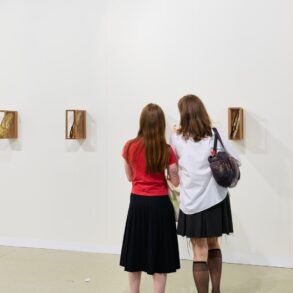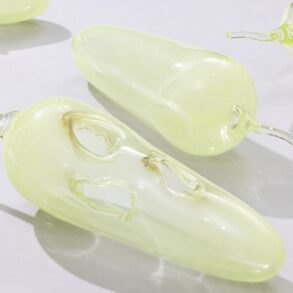
Artistic patriarchs who wreak emotional havoc on their families have provided rich literary rewards in recent years. Charlotte Mendelson examined the artistic tyrant in The Exhibitionist, while Rachel Joyce’s forthcoming The Homemade God portrays the psychological dysfunction of four siblings whose problems stem from their father, a domineering painter.
Lucy Steeds’s impressive debut, set in 1920, embraces a similar theme. The patriarch in question is a renowned but doggedly private artist, Edouard Tartuffe (Tata), who lives in Provence with his seemingly timid and obedient niece, Ettie. Many years previously, Ettie’s mother ran away with a lover, became pregnant and, later, suffered a tragically early death: “Ettie cannot remember her mother’s face. It is one of the things that pains her most, makes her clutch her stomach at odd moments.” In the care of her uncle for as long as she can remember, Ettie keeps house for him, cooks his meals, and procures and arranges the various ephemera required for his paintings.
Into this claustrophobic and controlling household comes Joseph, an ambitious young journalist determined to prove his worth to his father after refusing to fight in the first world war. His brother, meanwhile, languishes in a hospital with severe PTSD, exacerbating Joseph’s sense of inadequacy and shame at his pacificism: “He had never been able to say the word in front of his father without stammering. He had never been able to hold his gaze or stop his hands from shaking.”
The stifling Provence landscape and the visceral nature of creating and consuming art are evoked beautifully by Steeds, whose command of language is dextrous and powerful: “Sunlight radiates from the yellow fields and dust sticks to the olive trees, dark and fragrant in their arthritic twists.” Later, “crickets whir and heat beats down on Joseph’s head”, while the painting Tartuffe has created “has summoned all the light in the world and put it in the young man’s palm”.
The reveal about Ettie’s own artistic ambitions, when it comes, is not the narrative twist it might have been (arguably, the novel would have been stronger without the prologue), but that does not diminish the book’s impact. Steeds’s depiction of Ettie’s suppressed talents shines a light on generations of female artists who no doubt suffered similar obstacles, making for a hugely accomplished portrait of ambition and self-fulfilment.
This post was originally published on this site be sure to check out more of their content








